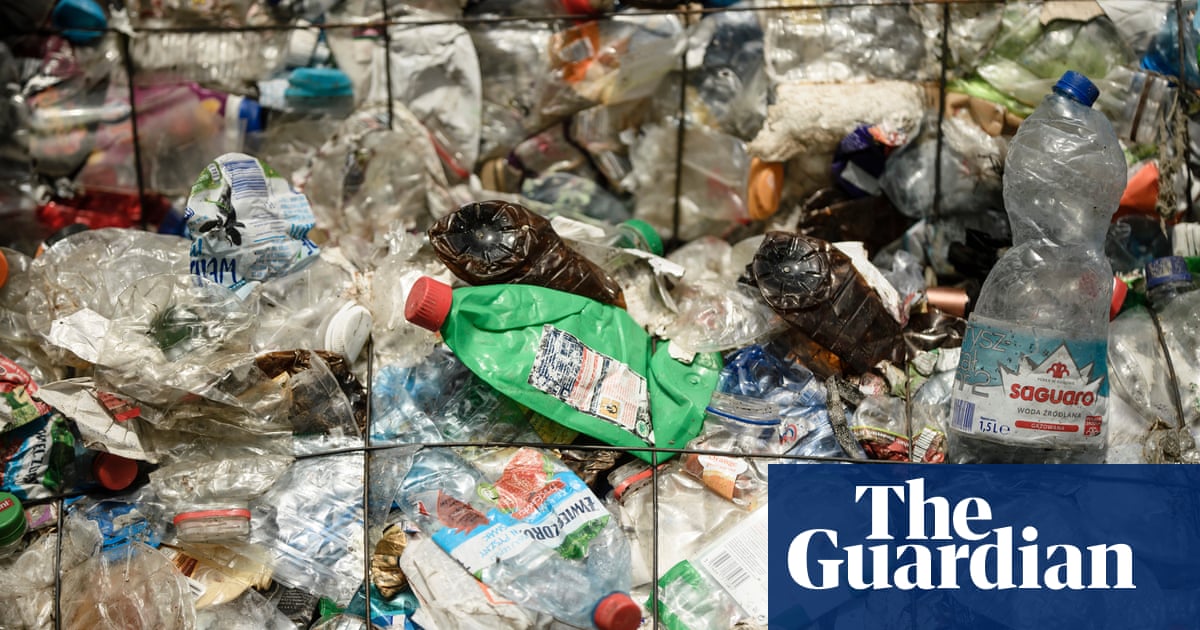Plastic producers have known for more than 30 years that recycling is not an economically or technically feasible plastic waste management solution. That has not stopped them from promoting it, according to a new report.
“The companies lied,” said Richard Wiles, president of fossil-fuel accountability advocacy group the Center for Climate Integrity (CCI), which published the report. “It’s time to hold them accountable for the damage they’ve caused.”
I worked in packaging for 20 years. A bottle CAN be recycled indefinitely… if it’s made from GLASS.
Source: I worked 8 years for a glass bottle manufacturer.Too bad most of those bottles got replaced with plastic completely disregarding the impact of the environment they are causing. Not to mention that glass also comes from abundant resources like sand and we don’t risk running out of it anytime soon, the same can’t be said for oil.
Not to mention that glass also comes from abundant resources like sand and we don’t risk running out of it anytime soon
Is now a bad time to point out that not only is sand not as an abundant resource as you think, but we’re actually running short of it?
https://www.popularmechanics.com/science/environment/a39880899/earth-is-running-out-of-sand/
https://theweek.com/news/science-health/960931/why-is-the-world-running-out-of-sand
Isn’t this specifically about sand for construction which needs to be coarse enough? For glass packaging you melt that stuff anyway, SiO₂ is SiO₂. Also I imagine the amount of sand needed for glass bottles would be way smaller than what construction industry uses, even less so if you recycle.
Specifically sand for construction and glass making. Not saying that glass bottles aren’t a better solution than plastic, just that the main resource needed is rarer than initially implied.
The real key is local bottling where local production isn’t possible.
Ship vats of Coca-Cola syrup to the 200 largest cities (more or less) in North America and create local bottle circulation.
Spice it up with local bottle designs or recycling marks. Now you’ve got novelty sales, collector sales, eco-conscious sales, ‘support local’ sales…
I am so confused. Isn’t that the coca cola model? Each area has some coca cola bottling franchise that services them, and they already have regional differences.
As far as I know local bottlers have been a thing for a long time yes. I remember TV ads for soda with a tack on slogan at the end from the bottling company. “Bottled by the good guys at Kalil”
Or aluminum
Aluminum has a plastic liner
Why couldn’t we switch back to glass as our primary container material? Wasn’t that always fully recyclable?
Apparently we’re running out of sand. That’s going to make the transition to glass harder. I’m not saying I don’t agree because I would definitely prefer glass than plastic.
For people that don’t want to read/don’t already know
It’s the types of sand, desert sand is useless
Sounds like someone needs to make a new glass processing method so we can use desert sand
Sorry but this comment is completely ignorant of the chemistry & manufacturing… you can make some shitty unusable glass with it, but unless you waste an unsustainable amount of resources to try to make the problems less apparent, a majority of desert sand is too low-silica to work. It’s a problem with the material, no new glass processing method will change that.
And if you do decide to use desert sand, it’s practically a logistics nightmare, especially considering you’ll likely have to be centered in one of the few deserts made of sand (most of which are in North/South-East Africa and the Middle East, but also Central Asia, Australia, some parts of the Americas). But even if you did it’s not sustainable or practical, and it most probably won’t be in the future, there’s a reason glass manufacturing plants smack dab in the middle of sandy deserts have to import their sand.
The thing is, chemists knew it. Nobody wanted to hear it. There are only three things worth recycling: Aluminum, glass, and electronics.
That’s extremely reductionist and inaccurate. Most metals can be recycled easily, not only aluminium.
Aluminium is typically used as is though, while many other metals are used as alloys. I suspect that it makes things much easier when you don’t have to worry about composition.
Note that I don’t really know anything much about metals or recycling, so I might be completely wrong.
Aluminium is typically used as is though
That would result in some shitty products. Aluminium is also mostly used as alloy, pure aluminium is pretty soft.
Well, that just shows that I shouldn’t speak of topics that I don’t know anything about. :)
Thanks for the corrections.
Had you not said anything, the guy above would not have sent a Wiki link, and I wouldn’t have read it
Best way to get good info on the Internet remains to say something wrong. ;)
The most fun you can have on the Internet is correcting people who are wrong. So, today was a good and fun day. Thanks. ;)
Well, as a american- everywhere I’ve ever worked has had a recycling bin but it’s always treated as another trash can. Just something that depresses the absolute fuck out of me.
The whole point of the article is that, in general, it WAS just another trash can.









